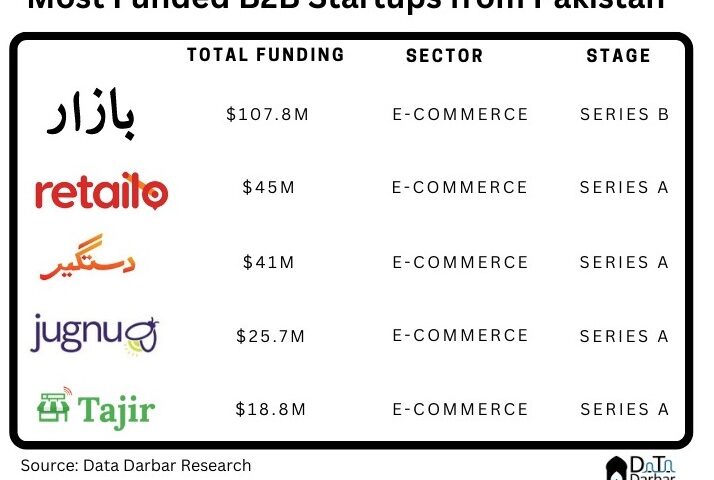Pakistan B2B marketplace Jugnu is shutting down its self-managed fulfillment center-based logistics and inventory model, the company announced in a press release late Saturday night. The management attributed this ‘pivot’ to “tough economic conditions globally and locally”. This comes only two days after we broke the news of MedznMore ceasing its operations and entering liquidation.
“Unfortunately, this shift in the business model will have a significant impact on some of our teams,” the press statement said. The co-founders said there haven’t yet been layoffs as the company is still in the process of finalizing its details.
“The first phase is an amicable closure of the existing operations i.e. the asset-heavy marketplace and logistics model, which we expect to close within 30-60 days. That includes liquidating current and fixed assets such as stock, warehousing infrastructure among other things,” Yasir Suleman Memon and Sharoon Saleem said in an interview with Data Darbar.
However, this does not mean that the company is entering liquidation. “Jugnu is and will remain a going concern,” Mr Memon said. “That does not include our tech-related intellectual property,” added Mr Saleem. What exactly would they do? “That’s the second chapter, whose details will be finalized afterwards but it will revolve around key areas of expertise: tech and retail supply chain.”
The B2B funding wave in Pakistan
Jugnu started off in 2020 as a product of Retailistan, a supply chain tech company founded in 2015 by FMCG veterans Yasir Suleman Memon, Sharoon Saleem, Syed Khurram Haider, and Ahsan Muhammad Khan. This was around the same team when a host of other B2B marketplaces surfaced up in the local ecosystem. It was among the most-funded verticals in the country over the last couple of years. The big five of this ecosystem — Bazaar, Dastgyr, Retailo, Jugnu, and Tajir — had raised a combined $238.8M. That’s more than 28.1% of all funding to have come into Pakistan between January 2019 and June 2023.

Most of them operate(d) on an asset-heavy model. Basically, the startups bought the inventory first from manufacturers/distributors and then sold it to kiryana stores. Generally, the startups offered discounts thanks to the VC money, reportedly resulting in negative margins. This also required building the logistics and warehousing infrastructure, which is again an expensive endeavor. The same playbook replicated across emerging markets, from GudangAda in Indonesia to Udaan in India.
In June 2021, Retailistan raised $3.2M in seed money from Systems Ltd, and an undisclosed amount from Sarmayacar in September. The following year in March, Jugnu announced a Series A of $22.5M led by Sary, a Middle Eastern counterpart. By this time, the two products had been spun off into separate entities with their respective boards and teams.
Following the fundraise, the company entered into financing solutions as well. In August, they launched Sarmaya buy now, pay later program for small retailers. This was again a common theme across B2B marketplaces, with Bazaar and Dastgyr having similar offerings.
The fault in our (asset-heavy) models?
But with the pullback in global venture funding, which fell to $60.5B in Q2-2023 — the lowest since the first quarter of 2020 — it has now become difficult to raise big rounds. “Given the changing fundraising environment, we realized it won’t be possible to continue the asset-heavy model,” Mr Memon said. “But we have the runway for an asset-light approach,” he added.
Let’s try to understand the extent of costs involved in the asset-heavy model. According to the annual report of Systems Ltd, Retailistan’s loss after tax widened to PKR 1.2B in 2022, from PKR 331M the year before. That’s around $6M based on the average exchange rate during the year as against the investment of $22.5M in 2022. So the management’s claim of not having completely run out of capital is believable. Unless of course, they doubled their burn in the first half of 2023, which again is unlikely as most startups had gone on the back foot by then. Unfortunately, due to the spinoff of Jugnu from Salesflo, the revenues of the e-commerce business aren’t available.
“The revenues reported by us are for continuing operations only, meaning only Salesflo’s numbers are reflected. Since Jugnu was spun off from the entity and our stake was diluted after the Sary round, it is classified as a financial asset and need not be treated using the equity method. However, the loss from discontinuing operations was reported as a one-off,” says Systems Ltd CFO, Roohi Khan.




